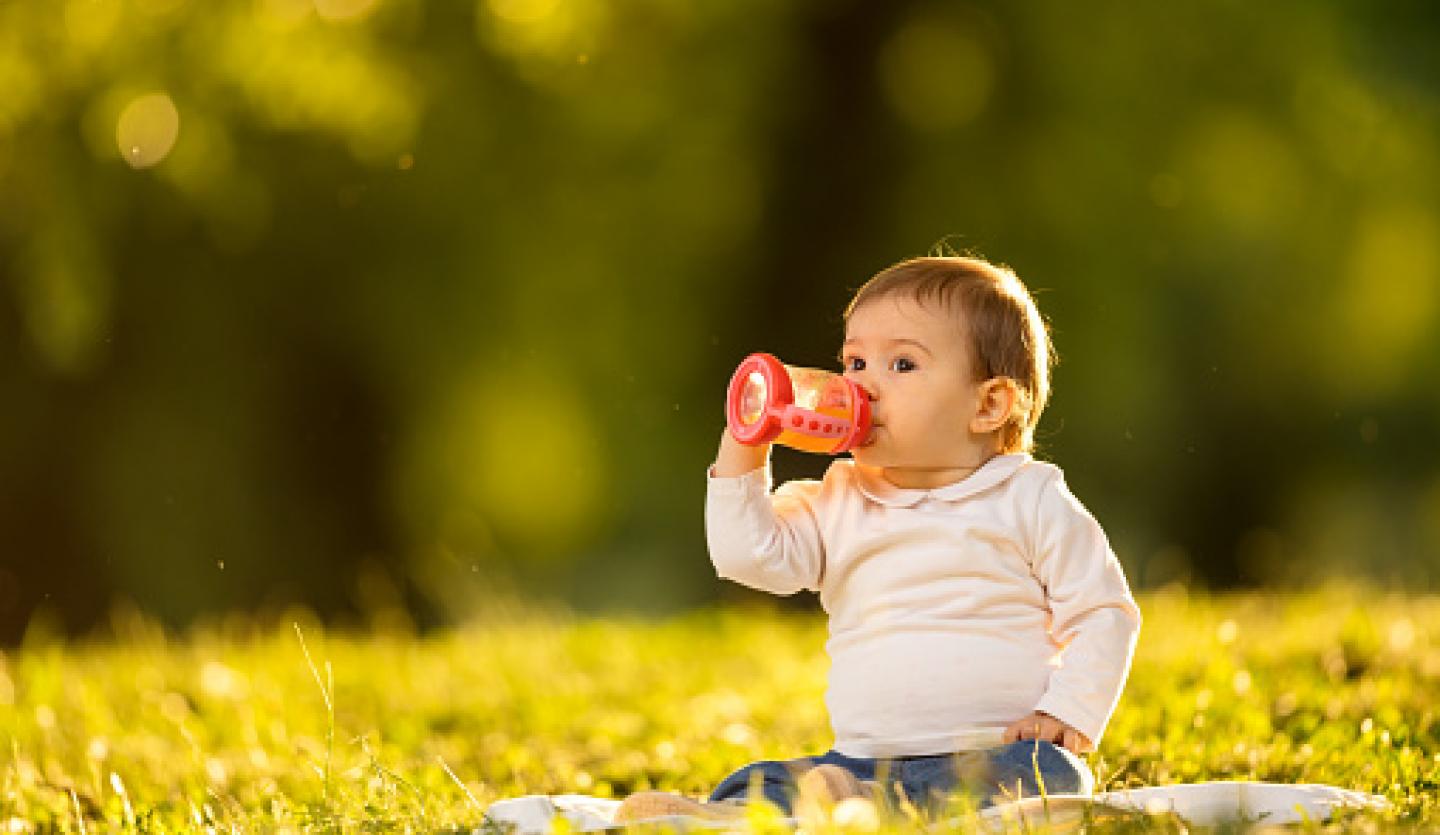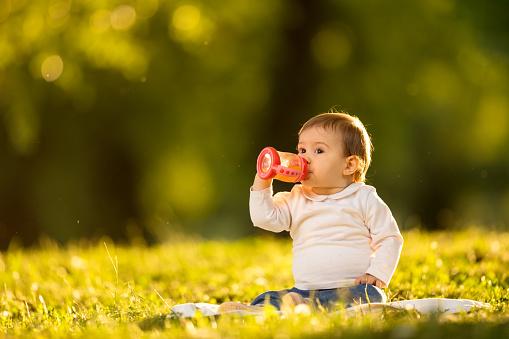Fruits are introduced to babies during later infancy, in addition to breastmilk or formula, as part of a well-rounded diet. Some parents offer their baby fruit juice in addition to fresh fruit or in its place believing it is a healthy alternative; however, this is not the case.
The American Academy of Pediatrics (AAP) recommends that fruit juice not be given to babies in the first year of life. This replaces their previous recommendation that advised against offering fruit juice to children less than six months. The AAP states that fresh fruit is preferable for older children because it provides dietary fiber and less sugar than juice. This is supported by recent evidence showing increased rates of obesity and poor dental health attributed to juice intake. Fruit juice, even 100% juice, offers no nutritional benefits early in life. It also can take the place of breast milk or formula, which provides the protein, fat and minerals that babies really need.
These recommendations may surprise parents who believed that 100% fruit juice was healthy for babies or nutritionally equivalent to fruit itself. The truth, however, is that four ounces of apple juice (1/2 cup) has no fiber, 60 calories and 13 grams of sugar. By comparison, a half cup of apple slices has 1.5 grams of fiber, 30 calories and 5.5 grams of sugar. The fiber in a piece of fruit also increases fullness. Store-bought juice is similar to soda in terms of sugar and calories.
The recommendations state that 100% fresh or reconstituted fruit juice can be a healthy part of the diet of children older than one year when consumed as part of a well-balanced diet. Consumption, however, should be limited depending on a child's age.
The policy statement recommendations include:
- Intake of juice should be limited to, at most, 4 ounces daily for toddlers age 1-3. For children age 4-6, fruit juice should be restricted to 4 to 6 ounces daily. For children ages 7-18, juice intake should be limited to 8 ounces or 1 cup of the recommended 2 to 2 1/2 cups of fruit servings per day.
- Toddlers should not be given juice from bottles or easily transportable "sippy cups" that allow them to consume juice easily throughout the day. The excessive exposure of the teeth to carbohydrates can also lead to tooth decay. Toddlers should not be given juice at bedtime.
- Children should be encouraged to eat whole fruits and be educated about the benefits of the fruit as compared with juice. It is important for children to learn to eat fresh foods.
- Human milk or infant formula is sufficient for infants. Low-fat/nonfat milk and water are sufficient for older children.
- Consumption of unpasteurized juice products should be strongly discouraged for children of all ages.
- Children who take specific forms of medication should not be given grapefruit juice, which can interfere with the medication's effectiveness.
- Fruit juice is not appropriate in the treatment of dehydration or management of diarrhea.
Call (866) MY-LI-DOC (866-695-4362) to find a Catholic Health physician near you.



